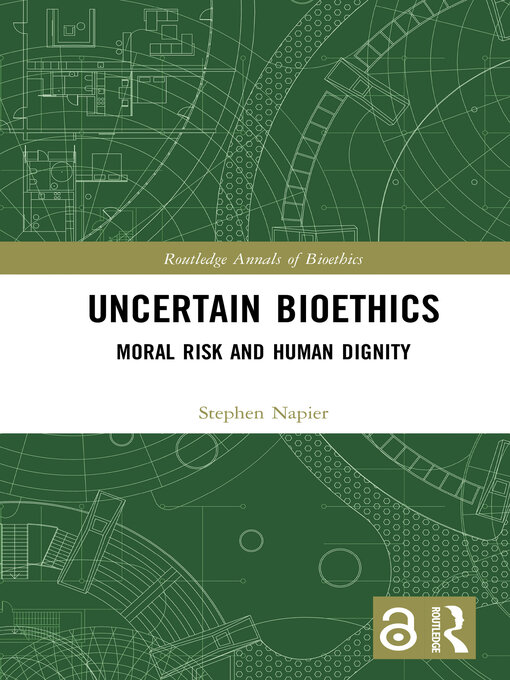Bioethics is a field of inquiry and as such is fundamentally an epistemic discipline. Knowing how we make moral judgments can bring into relief why certain arguments on various bioethical issues appear plausible to one side and obviously false to the other. Uncertain Bioethics makes a significant and distinctive contribution to the bioethics literature by culling the insights from contemporary moral psychology to highlight the epistemic pitfalls and distorting influences on our apprehension of value. Stephen Napier also incorporates research from epistemology addressing pragmatic encroachment and the significance of peer disagreement to justify what he refers to as epistemic diffidence when one is considering harming or killing human beings. Napier extends these developments to the traditional bioethical notion of dignity and argues that beliefs subject to epistemic diffidence should not be acted upon. He proceeds to apply this framework to traditional and developing issues in bioethics including abortion, stem cell research, euthanasia, decision-making for patients in a minimally conscious state, and risky research on competent human subjects.
- Book Day 2025
- Earth Day
- English Language Day
- 2025 UK Summer Reading Challenge
- British Science Fiction Association awards
- Book of the Year
- International Booker Prize
- 2025 Women's Prize for Nonfiction
- The Arthur C. Clarke Award
- Uplifting Reads to Kickstart Your Year
- Bestsellers of 2024
- Nero Book Awards
- Great Reads from Around the World
- See all ebooks collections
- World Cancer Day
- International Day of Women and Girls in Science
- Magazines
- World Photography Day
- See all magazines collections
